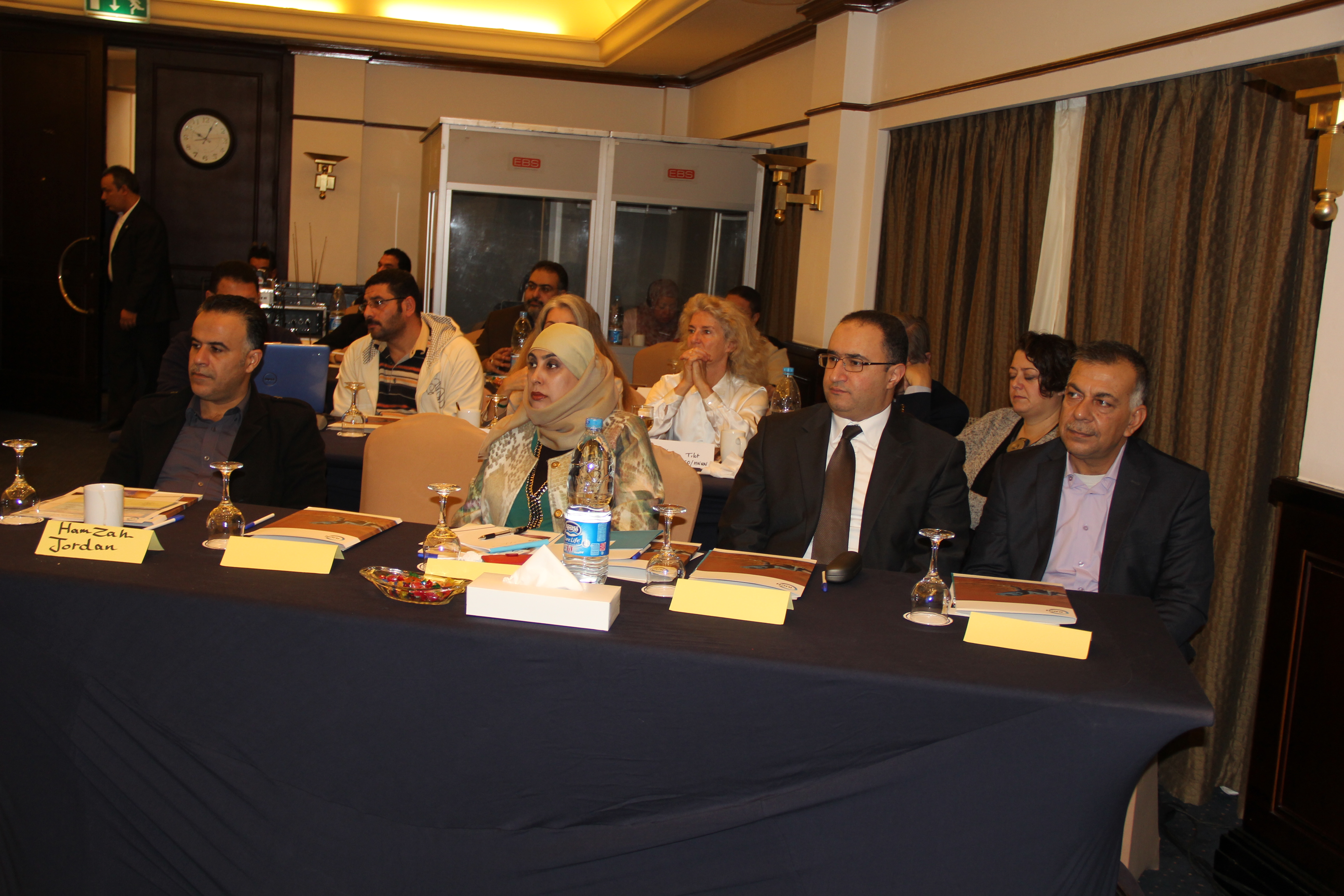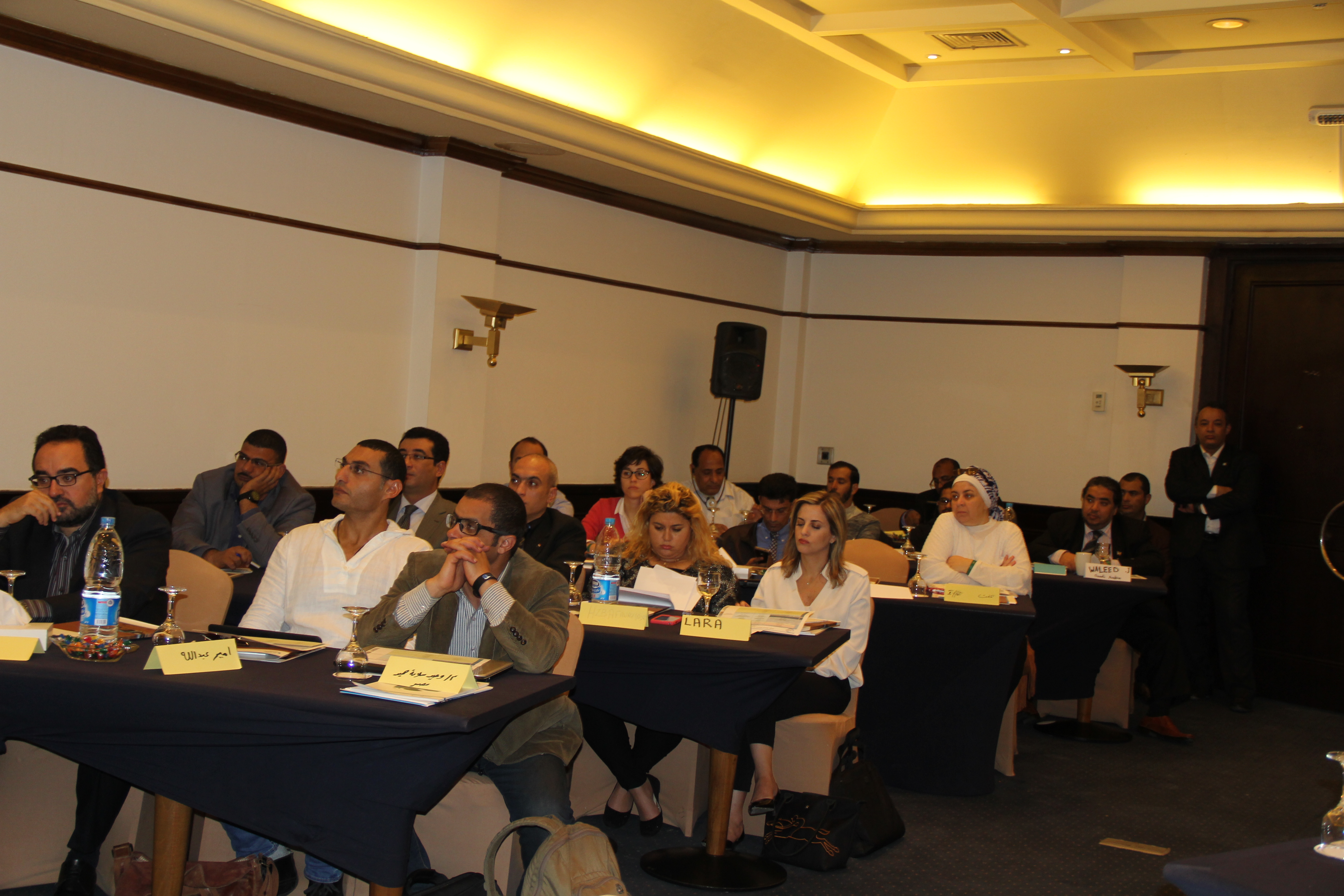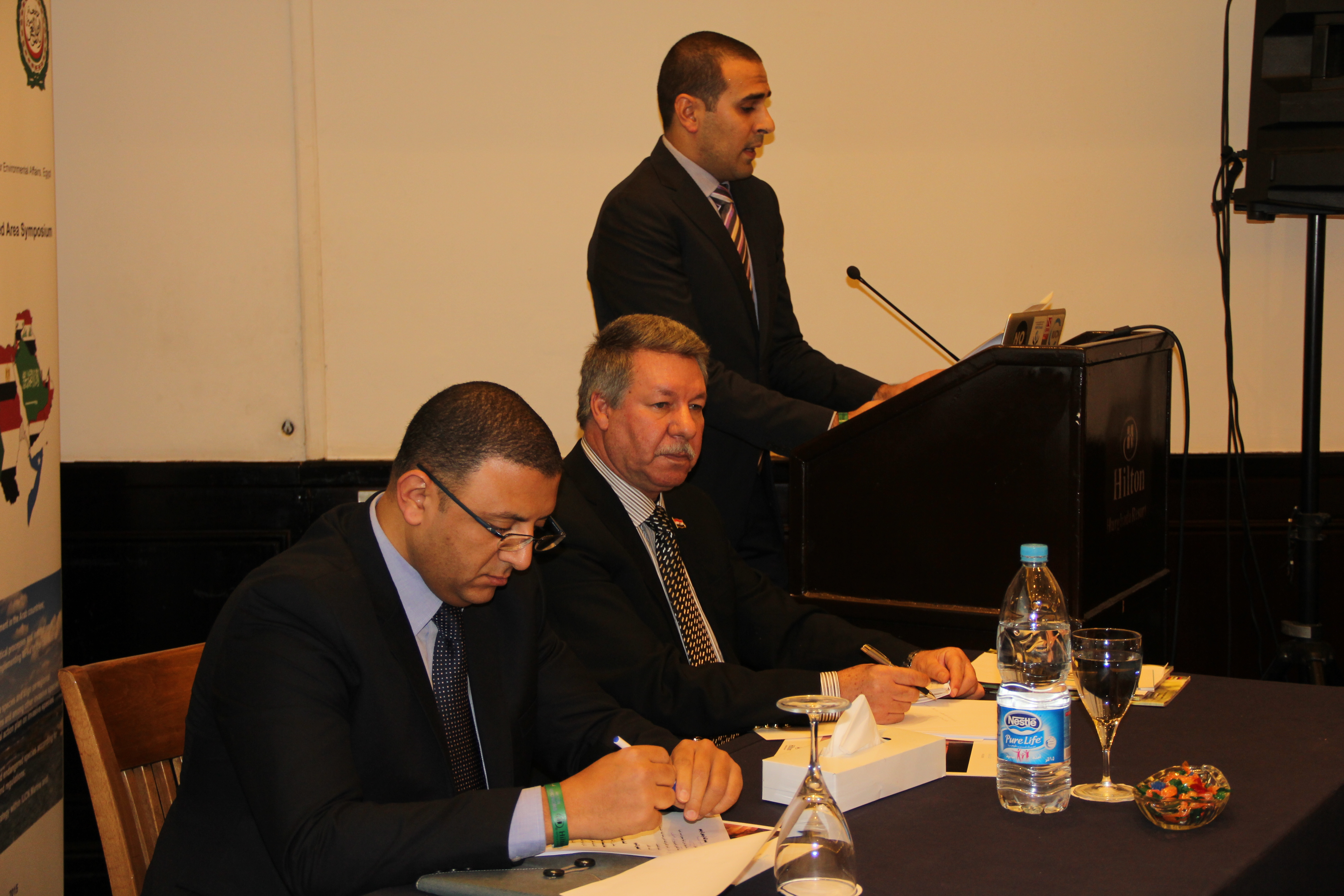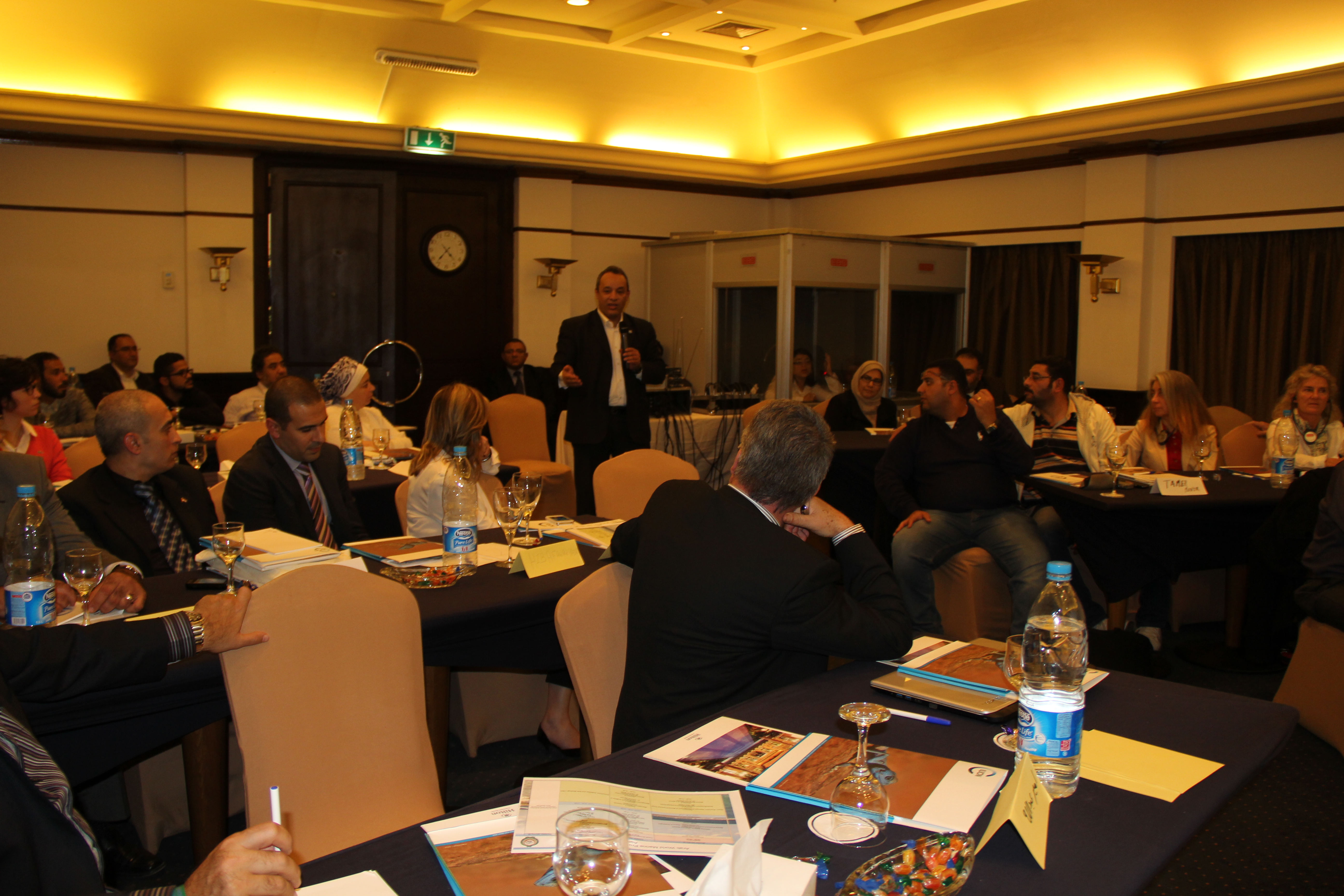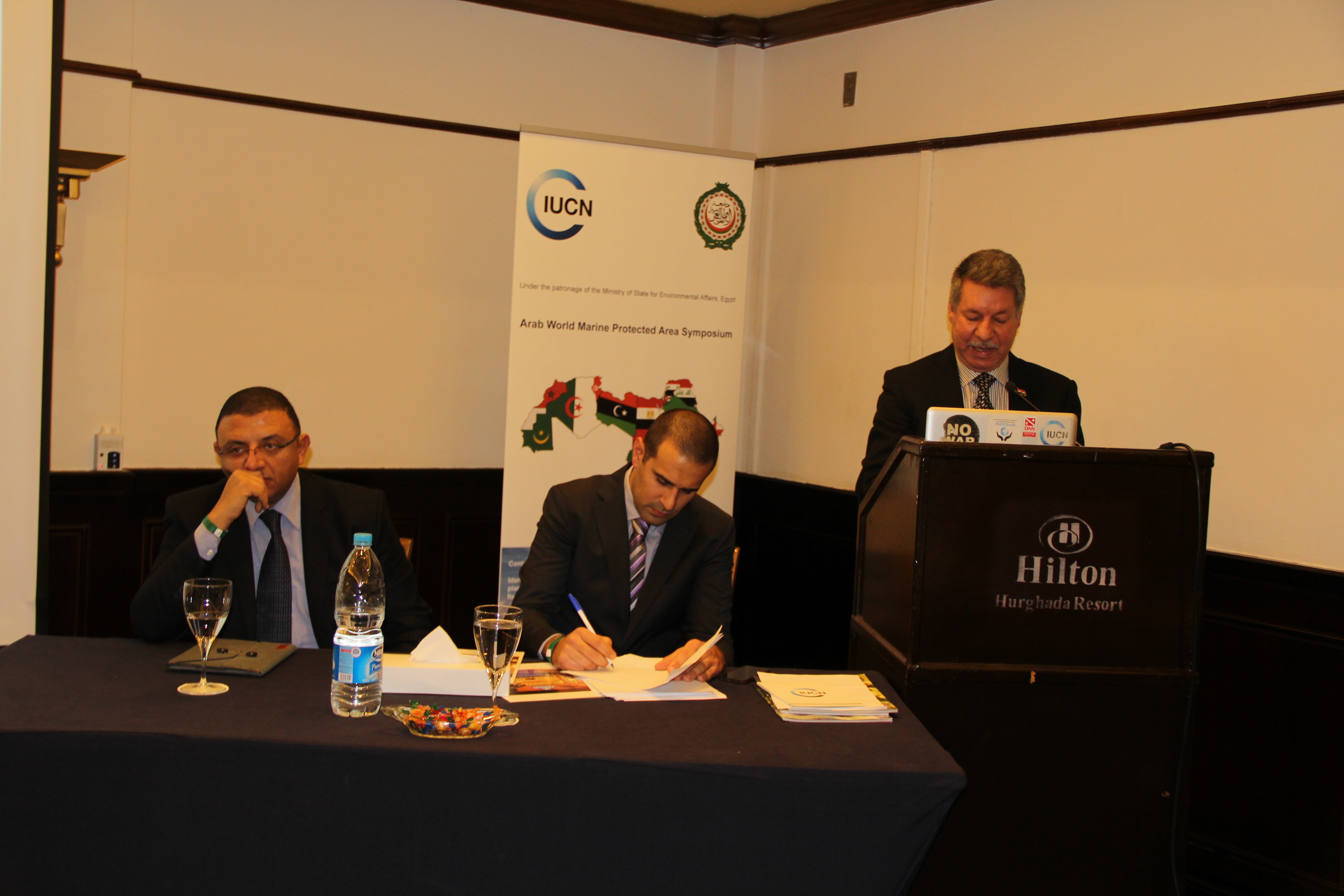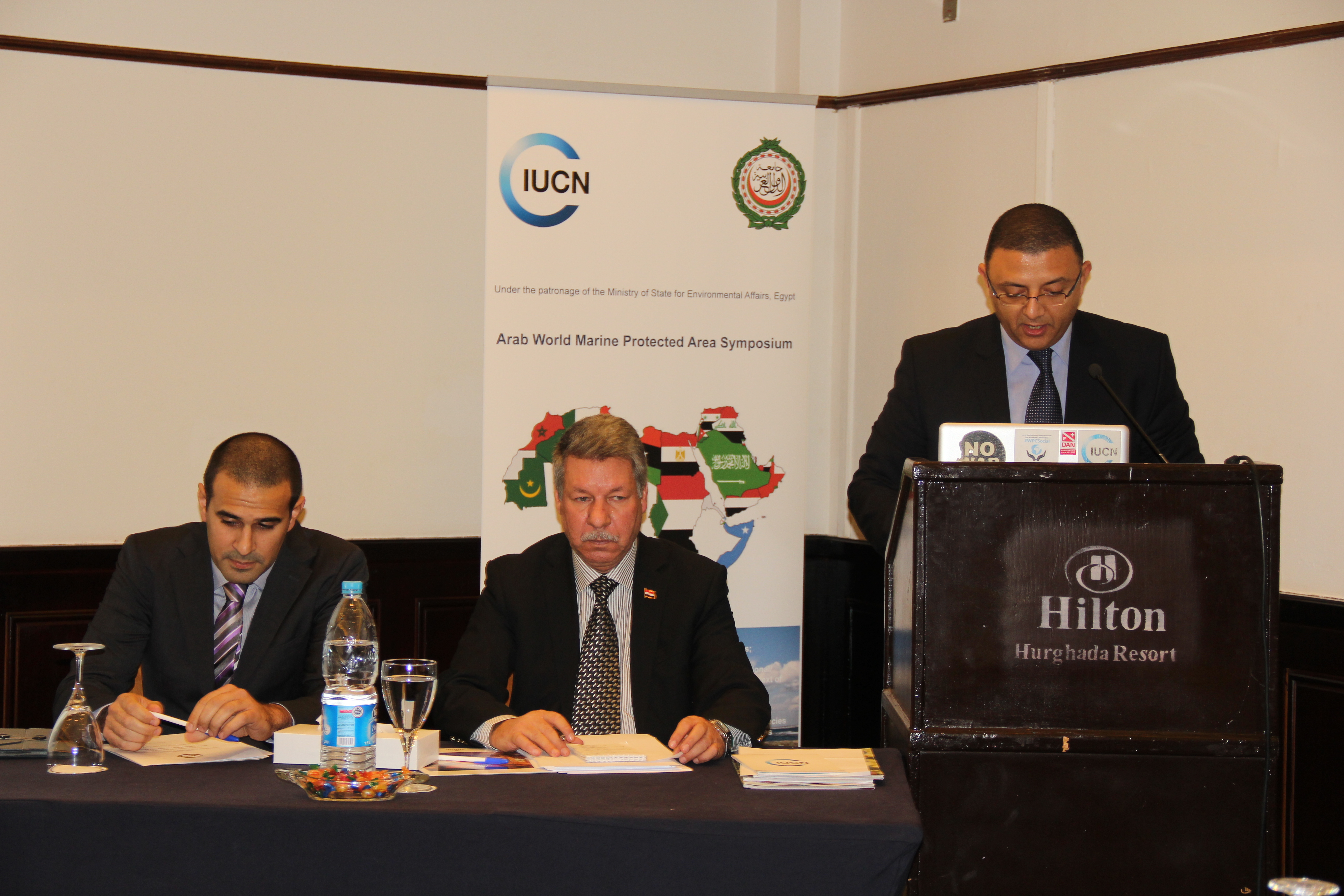Towards A Regional Strategy for Marine Protected Areas in the Arab World
“The Arab World Marine Protected Area (MPA) Symposium gave the experts in the Arab World the chance to exchange their experiences, highlight problems and gaps in the environmental sector in the Arab Region and suggest solutions for them. It reveals the importance of finding a structure that provides a technical and financial support to the MPAs in the Arab World” Dr. Waheed Salameh, the Head of Protected Areas Directorate in Nature Conservation Sector in Ministry of State for Environmental Affairs in Egypt said.
Growing concern about declining fisheries, habitat degradation and loss of marine species has led to increased discussion and advocacy of MPAs as part of the solution to these environmental, social and economic problems.
The need to safeguard our marine environment better and promote the sustainable use of its existing resources is increasingly being recognized worldwide. MPAs are gaining greater importance on global level, as they are the key tool for improved fisheries and by protecting marine ecosystems and reversing the degradation of coastal and marine habitats.
Aiming at putting into practice the IUCN Guidelines on MPAs and the World Heritage Marine Thematic Symposium, the International Union for Conservation of Nature (IUCN) and League of Arab States (LAS) organized The Arab World MPA Symposium under the patronage of the Ministry of State for Environmental Affairs in Egypt targeting more than 40 MPAs experts including government representatives from fisheries departments, environmental agencies and a number of international organizations and non-governmental organizations (NGOs).
As part of the regional dialogue, the IUCN ROWA hosted this symposium, which is intended to explore various aspects of conversation efforts, effective management and fisheries as they affect marine science, conservation, economics and social structure. This includes the perspectives of various stakeholder groups, some favorable to MPAs and some with reservations. The meeting also placed emphasis on the scientific theory and practice that are fundamental to the rational planning and management of reserves coupled with local knowledge arising mostly from local communities and fishermen.
The current situation of MPAs in the Arab World was discussed as well as the current and future challenges that may affect the MPAs. The participants learned about social and economic approaches to conserve MPAs and manage it effectively through highlighting various successful case studies from Arab World. They were also introduced to the concept of World Heritage and Marine World Heritage.
The experts came out with a shared vision that aims to analyze the current situation of the MPAs in the Arab World, the countries’ needs and its relation to the international agreements and to the decisions of the Arab Ministers of Environment in the Arab league and the future environmental challenges in the Arab World.
They also agreed on the following recommendation to ensure a successful strategy:
- Draft an action plan that will serve as an initial step to a regional strategy for MPAs in the Arab world.
- Establish a regional network from the participants in the symposium in order to review and edit the action plan in coordination and cooperation with the regional institutions like RACSPA, MedPan and others.
- IUCN will send the first draft of the action plan to the participants for their approval before send it to the Arab league.
- Give the IUCN ROWA in cooperation with IUCN Med the responsibility for finalizing the action plan clauses in order to give it to the Arab league for providing the needed financial support to implement the action plan on the ground or provide a fund from donors.
- IUCN through ROWA office will establish an Arabic data base for the MPAs that works on monitoring the marine ecosystems and the current and future changes.
For more information, kindly contact:
Ziad Samaha, Marine and Coastal Zones Programme manager at:
Ziad.samaha@iucn.org
